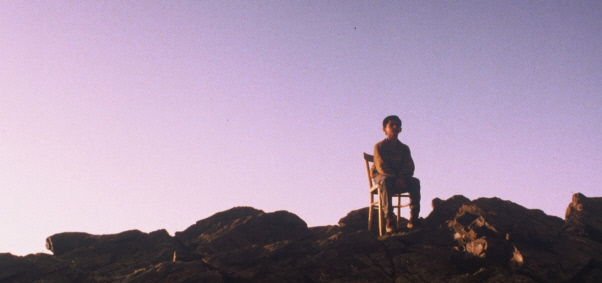Tripoli, 15 June 2013:
Tonight, the Arete Cinema Club will . . .[restrict]be showing films in Tripoli and Zawia and Benghazi.
At Tripoli’s Art House, an award-winning Palestinian film, The Time that Remains, will be shown at 6 pm.
Directed by Elia Suleiman, The Time that Remains is a semi-autobiographical drama, giving an insider’s perspective of 60 years of Palestinian life following the creation of Israel. Suleiman contemplates how much his homeland has changed since the Israeli declaration of independence in 1948, and how Palestinians have tried to maintain some continuity. The Time that Remains takes Suleiman back to Nazareth, as an actor, writer and director, to tell both his and his father’s stories.
The Time that Remains is in Arabic.
In Zawia, the French-Moroccan drama A Thousand Months will be shown at 6 pm at the Culture House.
Set during Ramadan in 1981, A Thousand Months tells the story of Mehdi (Fouad Labied), a seven year-old boy who lives in Morocco’s Atlas Mountains. Mehdi is led to believe that his father is away in France, although he is actually in prison. Directed by Fouzi Bensaidi, A Thousand Months focuses on Mehdi’s relationship with his village, his friends, and the world of stories that surround him.
A Thousand Months is in Arabic with English subtitles.
In Benghazi, Arete will be showing The Tale of Three Jewels – the first feature film ever shot in Gaza – at the Feel Cinema (Qarya Siyahiya) at 7 pm.
Made after the Hebron Massacre of 1994, Tale of the Three Jewels tells the story of twelve-year-old Yusef, who seeks refuge from the chaos of the massacre in the countryside, and Aida, a gypsy girl. Featured at the 1995 Cannes Film Festival, Tale of Three Jewels uses Gaza’s war-torn backdrop as a contrast for acclaimed director Michel Khleifi’s story of romantic longing.
Tale of Three Jewels is in Arabic with English subtitles.
Cinemas and Theatres were closed for many years under the old regime and the Arete Cinema Club aims to reintroduce film to Libyan communities. [/restrict]









